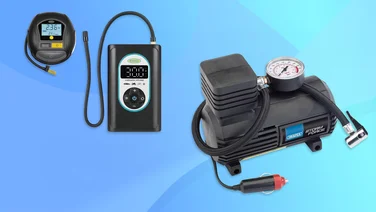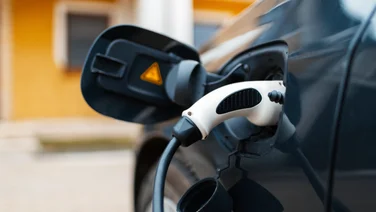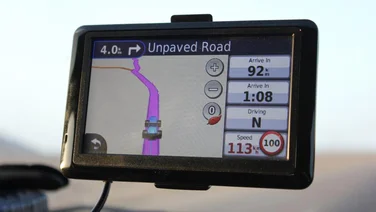To help us provide you with free impartial advice, we may earn a commission if you buy through links on our site. Learn more

The escalating cost of charging today’s electric vehicles using the public charging network means plugging in at home is pretty much essential if you want to cut down on bills – and for that, you need one of the best home EV chargers.
According to ZapMap, one of the UK’s leading e-mobility service providers and a widely used resource for locating nearby charging points, the cost of charging at both rapid and slower public charging stations increased by 10 to 12% between November 2022 and November 2023.
It’s now not uncommon to be paying 85p/kWh or more at some of the fastest chargers in the busiest areas, particularly motorway service stations. Being able to top up batteries at home slashes that cost drastically.
But to get the very best prices, you’ll need a “smart” EV charger and this is largely down to the fact they enable charging schedules to be set up in order to make the most of the cheaper off-peak tariffs.
In fact, there are so many benefits to smart chargers (more on those later) that the UK made it mandatory for all EV chargers produced after 2021 to be able to “send and receive information”, effectively making all new wallboxes smart in some respect.
Of course, there’s still the issue of fitting an EV charging wallbox and some folk simply can’t do this, whether that’s because there isn’t ample space, the property has covenants preventing installation or tenants can’t get the required permission.
But if you are able to fit one and you’re interested in making the most out of cheaper tariffs – and generally having more control over charging – read on.
Get a free home EV charger installation quote today
Need a quote for the cost of a home EV charging point? Take our quick survey below and we’ll provide a quote for installation that matches your exact requirements.
What is a smart EV charger?
Rewind the clocks to the early days of modern electric vehicles and most home charging units were “dumb”. It sounds overly critical, but really it means they lacked the communication technology and software required to talk to smartphones, energy providers, the car and beyond. You just plugged in and the vehicle started drawing power, much like your kettle would.
Things have moved on and now, a smart charger can feature Bluetooth and/or Wi-Fi connectivity built-in, which allows connection to a local Wi-Fi network as well as smartphones and tablets for faster connectivity between those devices, the car and the energy provider.
Should your Wi-Fi network’s footprint prove inadequate, there’s often the option to manually run an Ethernet cable to a number of modern smart chargers, while others even come with a built-in SIM card for 4G network access, removing the need for Wi-Fi or excess cabling.
READ NEXT: Best home EV chargers
Why do EV chargers need to be smart?
There are lots of benefits to a smart EV charger. But chiefly, the fact that one can be connected to an app or software on a laptop or PC allows greater control over charging schedules, as well as the ability to access remote diagnostics and even resolve issues with over-the-air updates.This ability for smart charger providers to incrementally update their home or business charging units’ software means they remain up to date and on top of any changes in the ways EV charging technology develops.
Granted, if a car manufacturer decides to completely change the design of its charging port, there’s not much you can do. But if there’s a way of making charging more efficient (and therefore cheaper) via software tweaks, this can be carried out remotely via an update or downloadable patch.
Are you interested in an EV charge point for your home?
Pick the best provider for you
Can a smart wall charger save me money?
Smart wall chargers come complete with additional tech, so most of the time, they’re going to be more costly than their older “dumb” predecessors. Consider the fact these companies have had to develop apps and additional software, and it’s easy to see why they are more expensive.But in the long run, smart chargers can actually save you money, and this is all thanks to their ability to schedule charging times. Setting a charge to start and end when electricity is at its cheapest is a surefire way to cut down on bills.
Many EVs allow for scheduled charging to be set up and organised directly from the infotainment system or the car maker’s accompanying app, but there are still plenty of electric vehicles on the road that don’t have this option. A smart charger would allow charge scheduling even if the car doesn’t.
What’s more, many energy providers, such as Octopus Energy, offer an intelligent tariff that allows users to connect smart chargers and/or EVs through its app, which in turn will automatically schedule a charge for when energy is cheapest and greenest.
For example, Octopus Energy claims that its average night rate is just 7.5p/kWh, which is in stark contrast to the 85p/kWh you’ll spend in many motorway service stations.
READ NEXT: Best energy suppliers
Are smart chargers greener?
The ability to charge an EV when demand on the grid is at its lowest not only saves you money, it can also be much kinder on the planet. Surplus energy from renewable sources, such as wind and solar, can be directed to vehicles waiting to be charged in the dead of night, when demand for other household electronics is lowest, for example.

Similarly, smart chargers can avoid drawing from the grid at its busiest times (so long as your schedule permits it), which means quick response power plants don’t have to be fired up – and these are among some of the dirtiest out there when it comes to carbon emissions.
In fact, the more EVs that find new homes, the greater the demand on the grid. If everyone plugs in and starts charging all at once, there will likely be serious repercussions.
This is part of the reasons why the UK government created legislation surrounding smart chargers, with wording in official documents stating that all smart chargers must “allow for a randomised delay function”. This protects the grid from destabilising should everyone decide to schedule their EV charging for exactly the same time.
Are you interested in an EV charge point for your home?
Pick the best provider for you
Do smart chargers work with solar and other domestic renewables?
Smart EV chargers are essentially just another piece in the overall “smart home” puzzle, and if you already have solar panels providing energy for your home, it’s highly likely an app or piece of software is sitting behind it all, managing everything.
With that in mind, there are some smart EV chargers that have been designed with solar in mind and the MyEnergi Zappi, one of our best home EV chargers, features eco+ charging that talks to existing energy management software and can then feed excess energy produced by solar panels into your EV.
MyEnergi states that electric car charging will pause if there is “too much imported power”, continuing only when there is “surplus free power available”.
Just bear in mind this won’t be the fastest way to charge an EV, as it won’t be delivering the full 7kWh at all times – instead, the Zappi juggles charging speeds as and when the greenest energy is available. When you consider something like a Kia EV6, with its whopping 77.4kWh battery pack, takes 11 hours or so to charge from a 7kWh outlet, this might not be the best solution for high mileage drivers.






